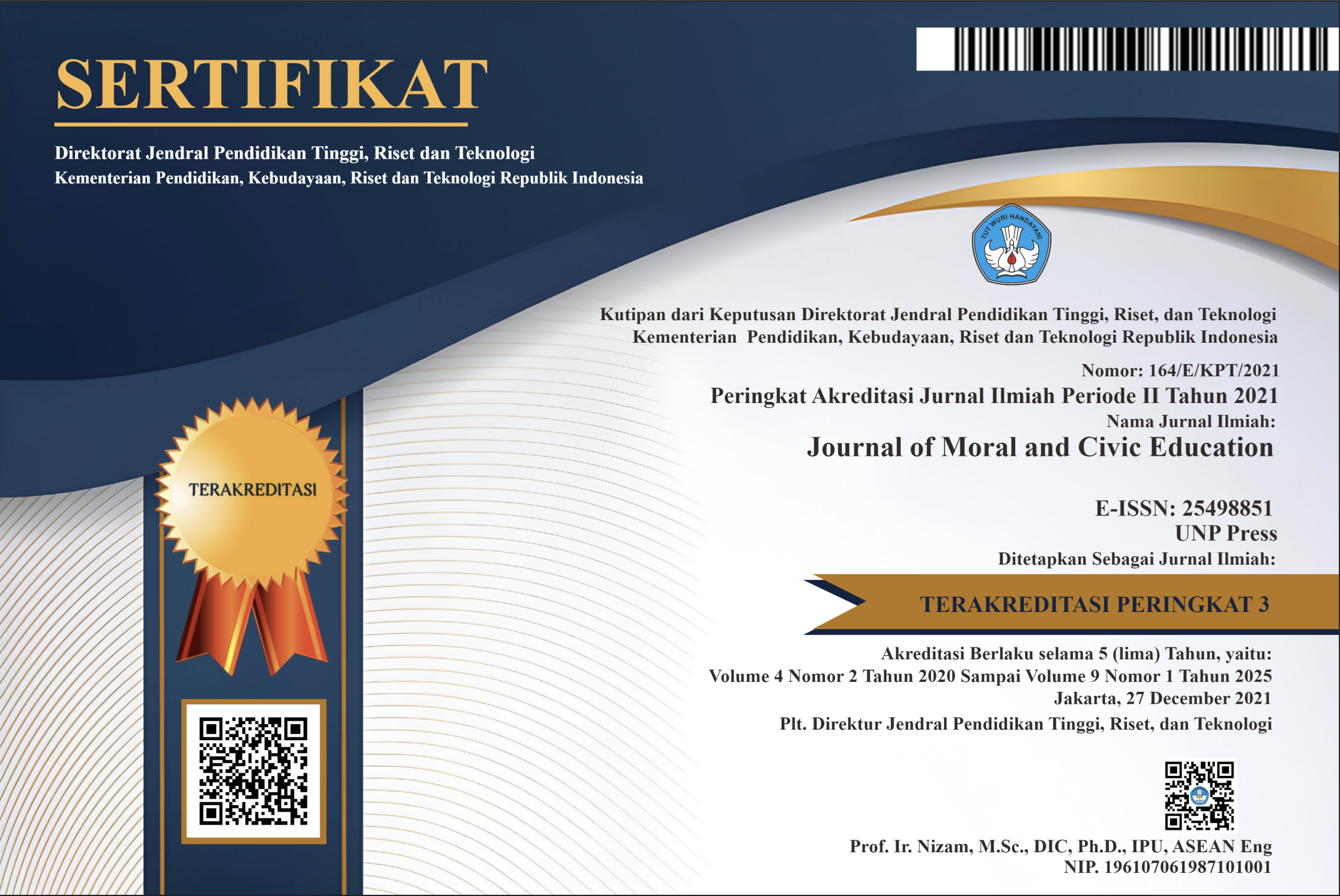Analisis Struktural Fungsional: Peran Sekolah dalam Implementasi Nilai Karakter Religius dan Cinta Tanah Air Siswa MI Afkaaruna Islamic School
Abstract
Preliminary studies show that MI Afkaaruna Islamic School (AIS) already has a religious curriculum and character education for loving the country, but there are some students who have not explicitly practiced it. The aim of the study was to analyze structural-functional theory and categorize the role of schools in implementing the values of religious character and love for the motherland at MI Afkaaruna Islamic School. Research using descriptive qualitative method. The informants consisted of class I-VI teachers, religious teachers, school principals, religious teachers, and foundation boards. Data collection techniques using in-depth interviews, observation, and documentation. The validity of using the credibility test to test the Structural Functional theory of Talcott Parsons and to examine the role of schools in the implementation of students' religious character values and love for the homeland. Data analysis techniques in an interactive inductive way. Miles and Huberman's data analysis is divided into three paths, (1) data reduction; (2) data presentation; and (3) drawing conclusions. The results of the study show that the role of schools in implementing the values of religious character and love for the homeland of students includes managers, educators and evaluators. As managers, schools (teachers & principals) view all students' backgrounds as equal and provide financial assistance to students who are struggling economically. As educators, schools (teachers & principals) implement religious values through monotheism. As an evaluator, evaluating religious character & love for the country uses two ways, namely the principal and the teacher council to become participatory observers and verify the daily journal. The results and discussion of the research explicitly prove that apart from being an institution that has a structure, schools also have a functional role. The key to a school's success in carrying out the implementation of religious character values and love for the country lies in the latency indicator, which according to Talcott Parson is the process of internalizing and socializing values. Therefore, latency requires habituation and continuity.




 JMCE is licensed under a
JMCE is licensed under a 